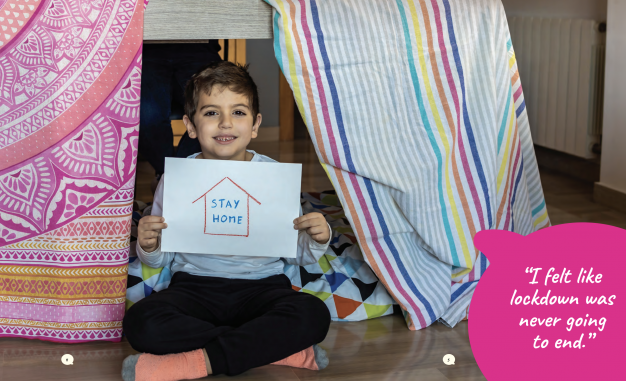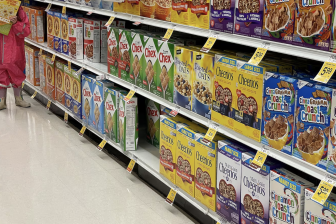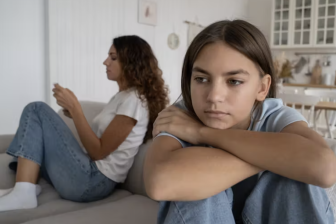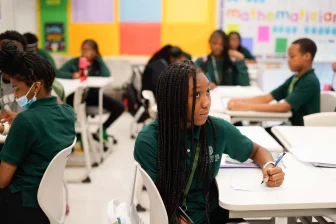
COVID’s impact on kids’ health & play habits in Northern Ireland
Play campaigners in Northern Ireland have spoken out on the dramatic impact that the COVID-19 lockdowns have had on the health, well-being and play habits of children
Youngsters right across the province have been ‘significantly affected’ by the continued restrictions, which have curbed their natural desire to play, according to research by Playboard NI, the country’s lead play agency.
Earlier this year it surveyed children and young people, ranging in age from five to 18 years, across Northern Ireland about their experiences during lockdown, with a focus on play and education. The resulting report, Our Voices Matter, has thrown up some fascinating feedback.
During the first lockdown from March to June, the type of play children were able to engage in changed. Being active through play dropped from 53.2 per cent to 31.4 per cent, while participation in social play dropped dramatically from 58.9 per cent to just five per cent, and technology-based play increased from 33.9 per cent to 55.7 per cent.
‘Greater appreciation of the value of play’
Key recommendations from the report include the adoption and implementation of statutory protections for children’s play, as well as a greater appreciation of the value of play as a key developmental activity in our homes, schools and communities.
Jacqueline O’Loughlin, chief executive of PlayBoard, said, “The Our Voices Matter survey captured the thoughts and feelings of children and young people, confirming that the restrictions placed on society have had a negative impact on their play, education and wellbeing. It is fitting that we are sharing our report on World Children’s Day, a day dedicated to the celebration of children’s rights, when our findings tell us that their right to play has been seriously diminished over the past few months.”
Though it highlights the negative impact of lockdown, the report does shine a light on some positive findings, not least that some children used restrictions to widen their horizons by exploring new play activities and experiences, which enabled them to develop new skills. Some also said that remote learning was a positive experience, and they were able to spend more time with their families.
‘Central to children’s development…’
“Covid-19 restrictions changed the way children played and this raises long-term health and wellbeing concerns such as activity levels and socialisation,” added O’Loughlin. “Engaging in a range of play activities is central to children’s development, learning, health and happiness. Children and young people have faced challenges they wouldn’t normally face, with 60 per cent of those taking part in our survey saying they felt sad during lockdown, and half feeling frustrated, angry or upset. Almost two thirds of children thought that school closures had negatively affected their education, with 90 per cent reporting that meeting their friends was what they missed most.
“School is much more than a place of learning for children; it offers structure to their day and allows for social interaction with their peers through play and other activities, essential for their social development. Missing out on these interactions, including with their teachers, was one of the most challenging aspects reported.”
The online survey was completed by 280 young people from across Northern Ireland between June and August 2020. PlayBoard NI organised the survey and report with help from from Dr Victoria Simms of Ulster University. She added: “Children in this study showed great insight and understanding of these changes and why they occurred. However, as we move through, and emerge from, this global pandemic we must prioritise children’s right to play and their education. If we fail to do so we ultimately let down a generation of children who really deserve our respect and support.”
Click here to read the full report.




